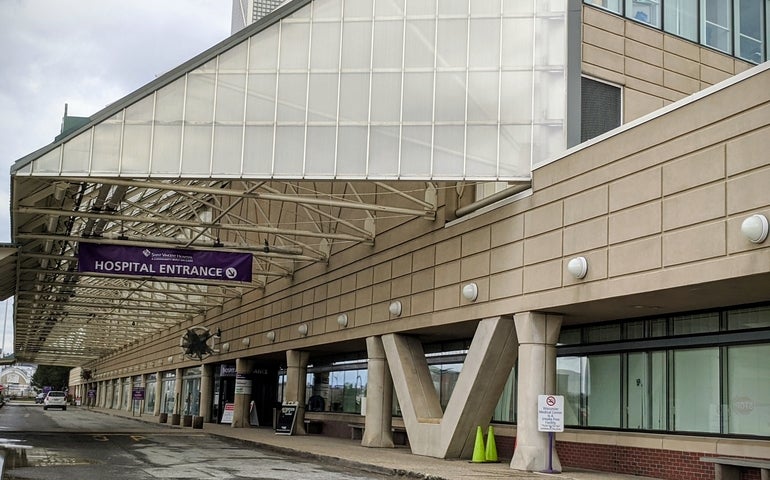Hospitals, nursing homes, insurers and state regulators in Massachusetts have banded together to agree to voluntarily and temporarily adapt operations in an attempt to ease some of the capacity crunch that is exacerbated when patients can’t promptly be moved from a hospital to a nursing home or other post-acute care setting.
The Massachusetts Health & Hospital Association said in its Monday newsletter that Health and Human Services Secretary Kate Walsh outlined the agreement last week in a memo that also was sent to the Massachusetts Association of Health Plans, Blue Cross Blue Shield of Massachusetts, Massachusetts Senior Care Association, LeadingAge Massachusetts and Steward Health Care.
MHA said the “well-documented patient ‘throughput’ problem is the result of many issues, from workforce shortages that have taken available beds offline, to the difficulty in transporting patients, to delays in getting the proper authorizations for the transfers.”
“The Massachusetts healthcare system continues to face severe capacity challenges as we navigate through the winter months with record hospital occupancy levels, three prevalent viruses circulating, and significant workforce shortages,” Walsh wrote in the memo, dated Jan. 9. “These issues exist across the system and require immediate, short-term action on all parts to release pressure in the system and support timely patient transitions to the most appropriate care setting. To that end, we have requested, and your respective membership organizations have expressed support for, the following temporary operational and practice flexibilities to mitigate the impacts of this significant surge.”
Under the agreement, BCBSMA and MAHP member insurers will waive prior authorization for admissions from acute care hospitals to post-acute care facilities until April 1, hospitals have agreed to start patient discharge planning as early in the day as possible and will “seek innovative ways” to improve staffing so that all of their licensed medical/surgical beds can be put into use with patients, and nursing homes agreed to extend their admission hours to at least Monday through Saturday from 9 a.m. to 7 p.m.
Last month, MHA released a report showing that about 750 patients were stuck in acute or post-acute care hospitals on any given day in November as they waited to be either transferred to skilled nursing or rehabilitation facilities, or to get care from home health agencies. Just more than 200 patients waited 30 days or longer to be discharged to a skilled nursing facility, MHA said.
Steve Walsh, president and CEO of MHA, applauded Walsh and the other organizations participating in the agreement, and said that easing prior authorization requirements could be “an especially powerful tool” for hospitals to keep patients moving along.
“The Massachusetts healthcare community has proven time and again that it can and will come together cooperatively to benefit the patients who rely on it,” he said. “This recent voluntary agreement, which comes at the busiest time of year for healthcare providers, is yet another example of that cooperation.”
The Department of Public Health’s acute respiratory disease data dashboard gives some indication of what hospitals and providers are facing as COVID-19, the flu and RSV spread rapidly following the holiday gathering season.
There were roughly 66,975 emergency department visits in Massachusetts between Dec. 31 and Jan. 6, according to the most recent data from DPH. The number of ED visits is up slightly compared to the same week in previous years. For example, the same week one year earlier saw roughly 65,240 ED visits and the same week two years ago saw about 64,000 ED visits.
But respiratory illnesses are a less significant part of the case mix this year than in the last two. Of the 66,975 ED visits the week of Dec. 31, 17.2 percent were related to a respiratory illness like COVID (3.4 percent), flu (2.7 percent) or RSV (0.6 percent). Respiratory illnesses accounted for 19.8 percent of ED visits one year ago and 29.8 percent of visits two years ago, according to DPH data.
During that same week from Dec. 31 to Jan. 6, there were about 14,788 hospital admissions in Massachusetts, DPH said. Twenty-one percent of those admissions were because of a respiratory illness including COVID (5.2 percent), flu (2.8 percent) and RSV (1 percent). The number of admissions was slightly higher than during the same week in previous years. There were 14,041 admissions the same week last year and 12,805 admissions the same week two years ago, according to DPH data.

